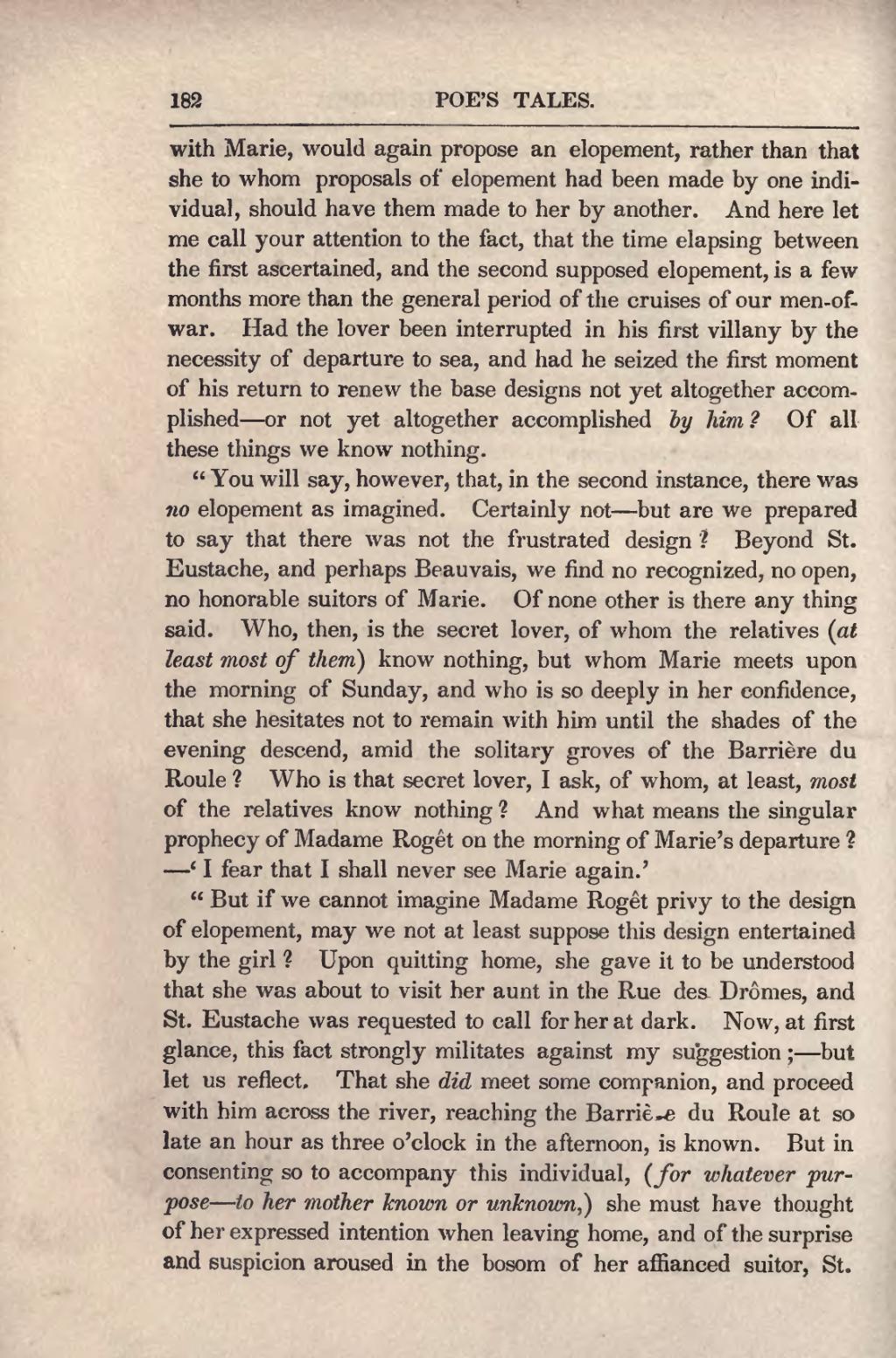with Marie, would again propose an elopement, rather than that she to whom proposals of elopement had been made by one individual, should have them made to her by another. And here let me call your attention to the fact, that the time elapsing between the first ascertained, and the second supposed elopement, is a few months more than the general period of the cruises of our men-of-war. Had the lover been interrupted in his first villany by the necessity of departure to sea, and had he seized the first moment of his return to renew the base designs not yet altogether accomplished—or not yet altogether accomplished by him? Of all these things we know nothing.
"You will say, however, that, in the second instance, there was no elopement as imagined. Certainly not—but are we prepared to say that there was not the frustrated design? Beyond St. Eustache, and perhaps Beauvais, we find no recognized, no open, no honorable suitors of Marie. Of none other is there any thing said. Who, then, is the secret lover, of whom the relatives (at least most of them) know nothing, but whom Marie meets upon the morning of Sunday, and who is so deeply in her confidence, that she hesitates not to remain with him until the shades of the evening descend, amid the solitary groves of the Barrière du Roule? Who is that secret lover, I ask, of whom, at least, most of the relatives know nothing? And what means the singular prophecy of Madame Rogêt on the morning of Marie's departure?—'I fear that I shall never see Marie again.'
"But if we cannot imagine Madame Rogêt privy to the design of elopement, may we not at least suppose this design entertained by the girl? Upon quitting home, she gave it to be understood that she was about to visit her aunt in the Rue des Drômes and St. Eustache was requested to call for her at dark. Now, at first glance, this fact strongly militates against my suggestion;—but let us reflect. That she did meet some companion, and proceed with him across the river, reaching the Barrière du Roule at so late an hour as three o'clock in the afternoon, is known. But in consenting so to accompany this individual, (for whatever purpose—to her mother known or unknown,) she must have thought of her expressed intention when leaving home, and of the surprise and suspicion aroused in the bosom of her affianced suitor, St.
